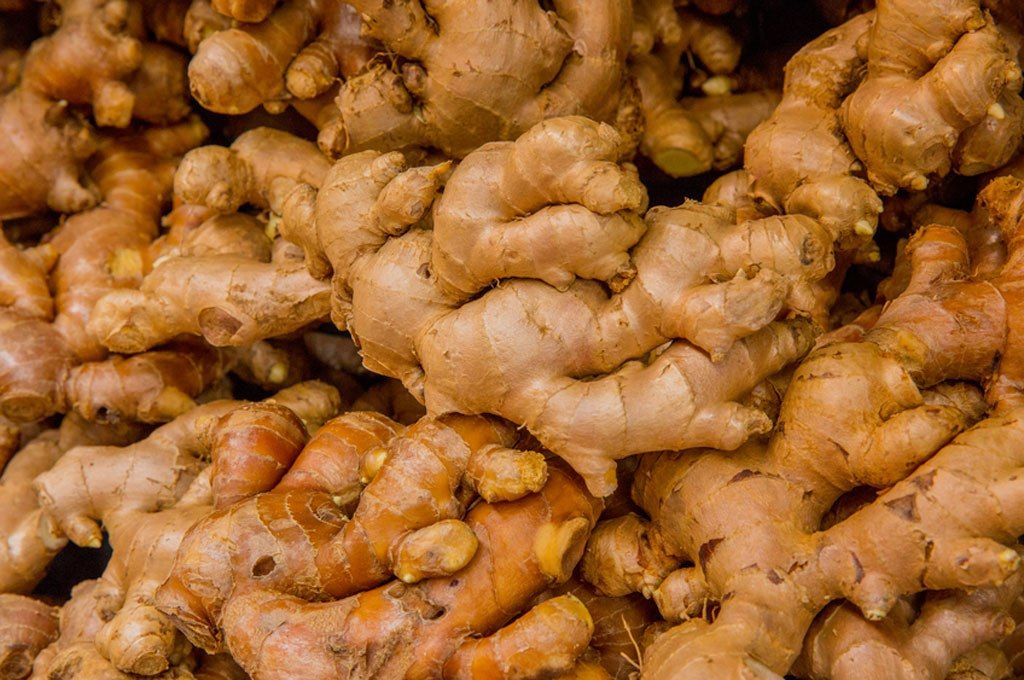Ginger, scientifically known as Zingiber officinale, has a rich history as both a culinary spice and a medicinal herb. This versatile root has been used in traditional medicine for thousands of years, particularly in Asian, Middle Eastern, and African cultures. In recent years, ginger has become a prominent player in modern herbal medicine due to its various health benefits. The rising popularity of ginger in modern herbal medicine has, in turn, significantly impacted ginger farming worldwide. This article explores ginger’s role in modern herbal medicine and the effects of increased ginger farming on the industry.
Ginger’s Medicinal Properties and Uses in Modern Herbal Medicine
Ginger is renowned for its potent anti-inflammatory, antioxidant, and antimicrobial properties, making it a staple in both traditional and modern herbal medicine. The active compounds in ginger, particularly gingerols and shogaols, are responsible for most of its therapeutic effects. These compounds have been studied extensively for their efficacy in treating various health conditions:
- Digestive Health: Ginger is widely used to treat gastrointestinal discomfort, such as nausea, indigestion, and bloating. It is particularly effective in alleviating morning sickness during pregnancy, motion sickness, and post-surgical nausea.
- Anti-Inflammatory and Pain Relief: Ginger’s anti-inflammatory properties make it a popular remedy for managing pain, especially in conditions like osteoarthritis and rheumatoid arthritis. Ginger extract is often used to reduce muscle soreness and menstrual pain.
- Immune System Support: Ginger’s antioxidant and antimicrobial properties help strengthen the immune system, making it an effective natural remedy for colds, flu, and other infections.
- Cardiovascular Health: Ginger has been found to lower blood pressure, reduce cholesterol levels, and improve circulation. It is considered a heart-healthy herb in modern herbal practices.
- Anticancer Potential: Preliminary studies suggest that ginger’s bioactive compounds may have anticancer properties, particularly in slowing the growth of certain types of cancer cells.
The Growing Demand for Ginger in Herbal Medicine
With the increasing demand for natural and holistic approaches to health and wellness, ginger has emerged as a key ingredient in herbal supplements, teas, tinctures, and topical applications. This trend is driven by a growing body of scientific research that supports ginger’s health benefits and the public’s increasing preference for plant-based remedies over synthetic drugs. Consequently, the demand for high-quality ginger has surged, leading to significant growth in ginger farming across the globe.
The Impact of Ginger Farming on Modern Herbal Medicine
The expansion of ginger farming has had profound implications for the modern herbal medicine industry:
- Increased Supply of Raw Materials: The growing demand for ginger has prompted farmers to increase cultivation, especially in countries like Nigeria, India, China, and Indonesia. This increased supply of raw ginger ensures that herbal medicine manufacturers have a steady flow of high-quality ginger to produce a wide range of herbal products.
- Sustainable Agricultural Practices: As the herbal medicine market places more emphasis on sustainability, ginger farmers are adopting organic farming practices to meet consumer demands. Organic ginger farming minimizes the use of synthetic fertilizers and pesticides, leading to a more sustainable and eco-friendly supply chain. These practices ensure that ginger-based herbal products are safe, effective, and environmentally responsible.
- Economic Empowerment: Ginger farming has become a source of livelihood for many smallholder farmers in developing countries. The increased demand for ginger has led to better income opportunities for farmers, fostering economic growth and development in rural areas. This economic empowerment enables farmers to invest in better farming practices, contributing to a higher quality of ginger for herbal medicine.
- Innovation in Cultivation and Processing: The modern herbal medicine industry requires ginger of specific qualities, such as high gingerol content and low moisture levels. This demand has driven innovation in ginger cultivation and processing techniques. Farmers are now using improved varieties, better irrigation methods, and advanced post-harvest handling processes to meet the quality standards required by the herbal industry.
- Biodiversity and Conservation Efforts: Ginger farming, when done sustainably, can contribute to biodiversity conservation. Many ginger farms integrate intercropping practices, where ginger is grown alongside other medicinal plants, helping maintain soil health, prevent erosion, and support local ecosystems.

Challenges and the Way Forward
While ginger farming has significantly impacted the modern herbal medicine industry, challenges remain. Issues such as fluctuating market prices, climate change, and pest infestations can affect ginger production. Additionally, there is a need for stricter quality control measures to ensure the consistency and safety of ginger-based herbal products.
To address these challenges, collaboration between farmers, researchers, and herbal medicine companies is essential. Investing in research and development to improve ginger varieties and farming practices can enhance productivity and quality. Moreover, educating farmers on sustainable agricultural practices will be crucial in ensuring a steady supply of high-quality ginger for the herbal medicine industry.
Conclusion
Ginger’s role in modern herbal medicine is undeniable, with its therapeutic properties being leveraged to treat various health conditions naturally and effectively. The increasing demand for ginger in the herbal medicine market has catalyzed growth in ginger farming, leading to economic benefits for farmers, innovations in agriculture, and a more sustainable supply chain. As the herbal medicine industry continues to evolve, ginger will remain a vital component, bridging traditional wisdom and modern science in the pursuit of health and wellness.
Ajigofarms is a reliable global agricultural purchase sourcing with profound expertise in the manufacturing, and exportation of food crops. We are tested, and trusted suppliers of all kinds of cash crops and food crops. Our constant supply chain solution makes exporting easy, quick, and safe, we are identified with timeliness and meeting up with deadlines. Regardless of the region you are located in worldwide, you can reliably order your Agric products and be rest assured of successful delivery.




